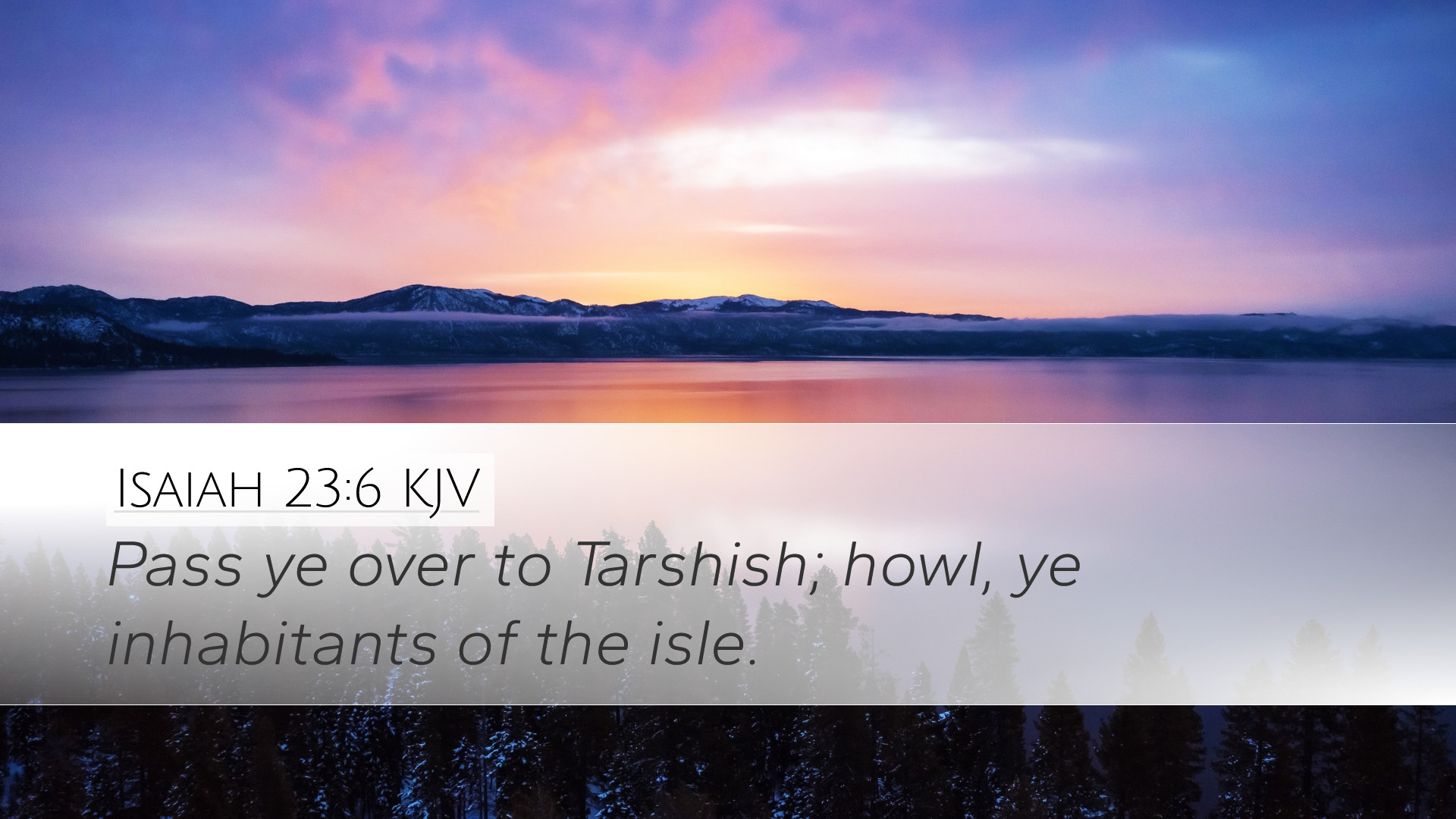Commentary on Isaiah 23:6
Verse: Isaiah 23:6 - "Pass ye over to Tarshish; howl, ye inhabitants of the isle." This verse offers profound insights into the prophetic judgments and the eventual desolation of Tyre, an ancient Phoenician city known for its commerce and maritime power.
Contextual Overview
Isaiah 23 addresses the devastating fate of Tyre, which was a significant trading hub in the ancient world. The chapter exposes God's judgment upon the city due to its pride and reliance on human strength rather than faith in God.
Exegesis and Insights
- Matthew Henry: Henry emphasizes the unity of judgment that God calls upon the people of Tyre. The verse serves as a summons for the inhabitants of the isle to consider their impending doom and the futility of their pride. He notes how the call to "pass over to Tarshish" signifies an impending migration or a futile attempt to escape their fate.
- Albert Barnes: Barnes reflects on Tarshish as a representation of a far-off land, suggesting that the people of Tyre will seek refuge in distant places as God’s judgment approaches. He comments on the emotional weight of “howl,” indicating a deep lamentation for their loss of status and wealth, cautioning readers to consider the transient nature of human accomplishment.
- Adam Clarke: Clarke elaborates on the geographical and historical context, pointing out that Tarshish was a significant trading partner for Tyre. He interprets the verse as a prophetic warning that even their most trusted allies will not be able to save them from the judgments wrought by God upon the great city.
Theological Implications
The passage provides a rich insight into the nature of God's sovereignty over nations and cities, showcasing His power to bring down the proud and elevate the humble. It challenges theologians and scholars to reflect on the dynamic interplay between divine judgment and human agency, urging a deeper understanding of God's plans in history.
Lessons for the Church
- Call to Humility: The demise of Tyre serves as a cautionary tale for contemporary societies that place excessive trust in material wealth and human strength.
- Urgency in Evangelism: The lament of Tyre emphasizes the importance of proclaiming the Gospel in the face of impending judgment, urging believers to reach out to those unaware of their spiritual peril.
- Hope in God's Justice: While the verse speaks of judgment, it also affirms God's ultimate control over human history. This duality invites pastoral leaders to emphasize both God’s justice and mercy.
Conclusion
Isaiah 23:6 invites us to contemplate the ramifications of pride, the futility of human might, and the unwavering power of God’s judgment. The insights gleaned from public domain commentaries deepen our understanding of this verse and its resonances throughout scripture. It encourages ongoing reflection in preaching, teaching, and personal study, enriching the collective life of the Church.


